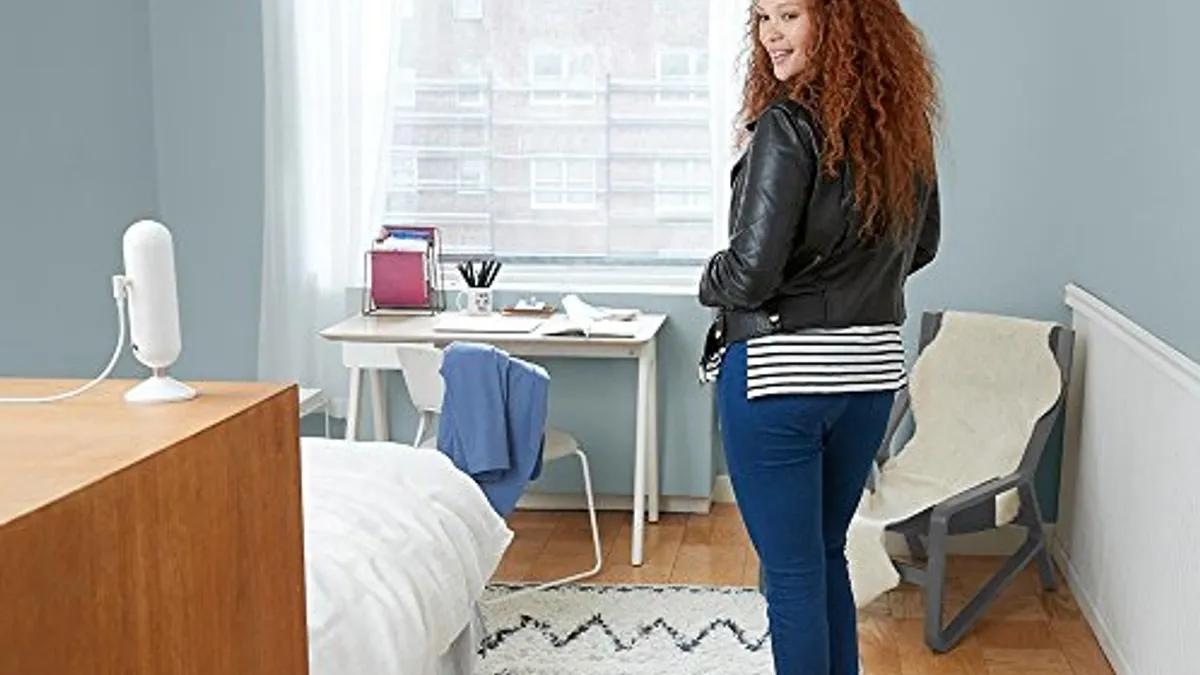Dive Brief:
- Amazon is relying more on its marketplace to sell apparel, and by itself offers fewer Adidas and Nike products than Macy's despite Nike's tie-up with the e-commerce giant, according to a report from Coresight Research. In fact, that partnership reduced Nike's presence on Amazon by 46%, "driven entirely by a drop in third-party listings," according to the report.
- Amazon between February and September offered 1.12 million apparel items, a 27.3% increase fueled by its marketplace, according to the report. Without third-party sellers, the assortment rose just 2.2% (and marketplace listings alone rose 30.5%), Coresight found. Overall, just 11.1% of apparel is sold by Amazon itself, with third-party sellers offering the rest — nearly 90%.
- The slumps in sales of Nike and other brands that have partnered directly with Amazon arise from a desire to prevent counterfeit and gray market sales, according to Coresight. And 38% of Amazon customers also prefer shopping directly on Amazon for apparel, Coresight said.
Dive Insight:
Amazon has its reasons to push third-party sales on its platform. Perhaps chief among them, the e-commerce giant is able to kick back and collect fulfillment and storage fees while sellers grapple with orders and inventory.
The percentage of marketplace goods sold on Amazon.com has risen to 53%, Amazon said in its most recent earnings report. In the process, the company has boosted its gross margins and gross profit, and that will only continue, according to Instinet analysts, who said in a report this week that the e-commerce giant is morphing into more of a mall than a retailer.
But that's interfering with its apparel game, according to Coresight. "If Amazon held more first-party clothing inventory, it would mean that more products on the site would be eligible for Prime delivery. In our view, that would boost Amazon Fashion's appeal as a shopping destination among Prime members, as some, though not all, products currently listed by third parties on the site are Prime eligible," according to Coresight's report. Plus, customers are more comfortable with Amazon's first-party authenticity, shipping and return charges, and return policies, according to Coresight researchers.
While much is made of Amazon's rise over Macy's when it comes to apparel sales, that's more of a "mixed picture," considering its reliance on its marketplace, Coresight said. Amazon offers many more products from brands like Calvin Klein than Macy's does online, but "far fewer" Nike brand products. Add in the marketplace sellers, and "Amazon.com is comfortably ahead of Macys.com on all the brands listed," according to the report.
But that's not necessarily an advantage, considering that the marketplace is also getting overwhelmed by generic apparel brands shipped from China, Coresight said. "In the past half year, low-price generic brands have made a major incursion into Amazon's listings, and these anonymous, often-imported goods are swamping the branded offering," according to the report. In fact, in a rundown of the top 30 brands listed on Amazon Fashion, including a breakout by first-party and third-party listings, such generic brands dominate the top spots, Coresight found.
The report is an update of a February analysis this year that Coresight conducted with competitive intelligence provider DataWeave, aggregating data on more than 1 million women's and men's clothing products listed on Amazon.com.
















